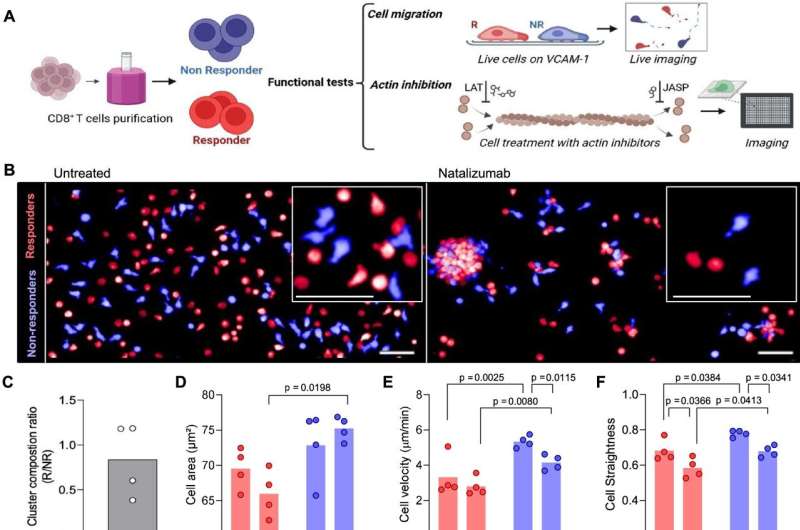Despite its effectiveness, about 35% of users do not respond completely to therapy and experience a return of symptoms within two years of starting treatment. Additionally, while it helps reduce the frequency and severity of outbreaks and slows disease progression, it can cause adverse reactions such as an increased risk of serious infection (progressive multifocal leukoencephalopathy), headaches, muscle and stomach pain, fatigue, and depression.
Using an innovative methodology, the group of scientists achieved an important advance in precision medicine. This advance will allow patients to have a better quality of life in the future with targeted treatments that have fewer side effects and produce positive results in shorter periods of time. It will also reduce costs for the public health system. Natalizumab, a monoclonal antibody, is provided in Brazil by its nationwide public health network (known as SUS, which stands for “Sistema Único de Saúde”) and costs an average of BRL 10,000 per patient per month.

